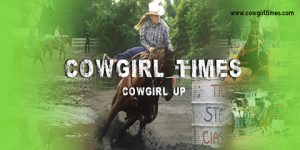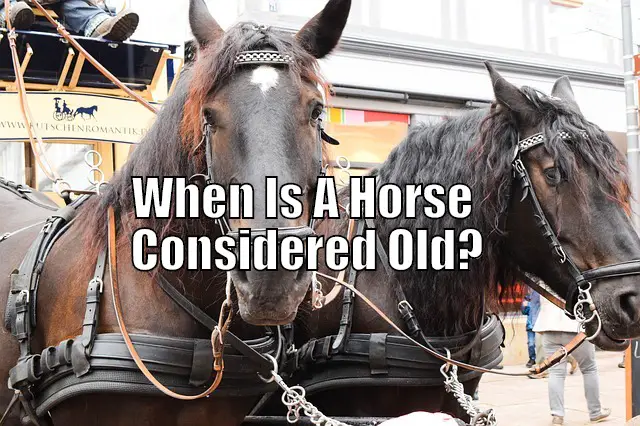Don’t you ever just all of a sudden start wondering about the age of your horse? And ask yourself that “how old exactly has my horse gotten?” because it’s difficult to figure out the age of a horse by just looking at it.
When is a horse considered old? You want to know this so that you can be prepared for whatever is coming with the old age of your horse. Well, lucky for you, because below is explained when to expect your horse to become old. So, don’t stop reading because valuable information is waiting down there that you need to get know about your horse.
At what age is a horse considered old?
A horse can either be defined aged chronologically or aged functionally. Functional age takes into account of the horse’s use. For example, a 10 year old Thoroughbred is old for racing but young for Grand Price dressage competition. According to age, a horse is considered senior when it reaches 15+ years of age. Due to advancement in veterinary care now horses live up to 25-30 years of age and some may reach age 40. It is now common to see horses performing actively even in teens and twenties. 30-35% of the current horse population in the US are old. Surveys show 54% of all horse owners own at least 1 old horse.
Problems and conditions that determine old age
A horse’s physical condition, mental condition, chronological age, history and health problems play a part in determining whether a horse is old or not. For a horse, besides age what makes it old or young is how fit and healthy it is. If we take care of it and look after it really well then it will cross 20 years of age easily. If not taken care well, its physical development will be effected negatively. Ponies mature faster but they live longer than large horses. Some age record breakers have been ponies. Signs of aging of horse are weight loss, poor topping condition, hoof quality and hair coat damaging.
Dental issues define old age in horses
Another sign is dental issues which can be indicated when they drop their feeds while eating and dropping not completely chewed hay out of their mouth when they are eating. Their digestive system also deteriorates with age which causes them loose stools. Due to this their nutrition is highly affected and the nutrients are poorly absorbed and thus not utilized by the body. Old horses face poor nutrient absorption mainly in the case of phosphorus, vitamins and protein. Enzyme production also decreases. Old horses require a more closely monitored health regime to younger horses.
Old horses suffer from many of other problems as well
Horses need extra care to be taken of their teeth as they age. Because horses are animals that need to chew on hard plants and such they naturally have hypsodont teeth to help them with it. They have extra amount of reserve crown. Throughout a horse’s life, he suffers with teeth problems because of nibbling on hay and forage. Horses at 12 years or above suffer through dental problems including the wave mouth. Other problems that old horses face is the loss of teeth and teeth taking place of lost teeth which can be a painful process, and as a result of these the old horses are not able to eat and have nutrient deficiencies and become unhealthy.
Horses also suffer low immunity when they get old. They are open to many diseases and parasites that are really harmful to their health. These parasites suck all the nutrients from their bodies and leave them to be very weak. If you see your old horse getting weak or showing less activity than it used to then immediately go to a vet to get him checked
Horse’s hoofs can also stop working when they get to old age and they need extra care and attention in that age. Although they need more care, old horse’s hoofs have similar problems as normal hoofs. There are also many diseases related to horses in old age and one of the most occurring one is called the Equine Cushing’s disease or pituitary parents intermediate dysfunction, which is a hormonal disease.
The main reason that you cannot tell a difference between a young and an old horse is because they usually still have kept good body shape. The factors that define their old are weight loss, diseases and hormonal abnormalities. Gastric abscess is another problem that old horses might have to go through, if their feed isn’t of good quality.
Conclusion
Even if your horse has become old and is going through various old age problems, it is the horse that once gave you immense joy and happiness. You should take care of your horse even more that it has reached old age. Feed him, bath him and pamper him as much as you can to comfort him so that his pain reduces. If you notice your horse becoming really thin and losing activity, be sure to consult a vet and ask for instructions on changing the diet to better its health conditions. If your horse has been diagnosed with a disease or an illness then always follow the vet’s instructions on feeding and give him the prescribed medications carefully.

